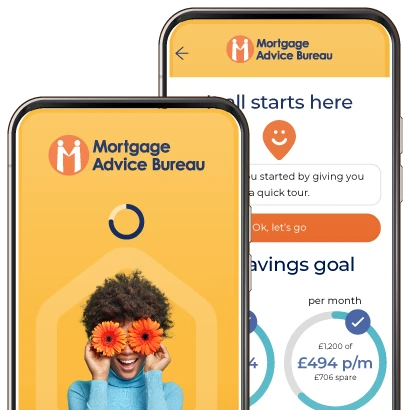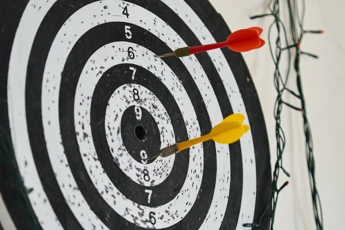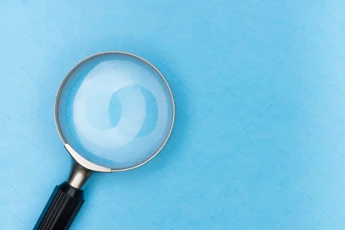Let’s imagine there’s a house you’ve set your sights on and you’re rearing to get started on your homeownership journey. You reckon you’ve got enough for a 5% deposit, so you could secure a 95% mortgage (if your credit score supports it).
However, with interest rates as they are and a mortgage crunch in full swing, would it be better to wait and save for a bigger deposit? It may mean missing out on this house, but what benefits could you reap by holding off?
Let’s find out!
What is a big deposit?
Typically, lenders ask for a minimum of 10% when securing a mortgage but you can get a mortgage with a 5% deposit. That being said, there are certain thresholds where you’ll notice significant increases in benefits.
25% deposits
A 25% deposit is a favourable position to be in when buying a house, as it’s where you’ll start to see more preferential interest rates opening up. While less than 25% is typical for many first time buyers, gifted deposits or inheritance could get you there.
50% deposits
A 50% is most commonly seen with existing homeowners, those selling their properties with substantial equity in them already. If you’ve been steadily paying off your mortgage and seen an increase in your home’s value then you may find a 50% deposit to be more likely.
A deposit of this size makes you look like a low-risk borrower. This results in favourable interest rates and could reduce the impact of other variables, such as poor credit history.
75% deposits
If you’re fortunate enough to have a 75% deposit, then you shouldn’t have much difficulty securing a mortgage. While not outwardly common, it is possible to have this kind of deposit. Perhaps you’ve sold the family home or downsized. Perhaps you’ve been left with a sizable inheritance or have received an insurance pay out.
At this point, it may be worth exploring additional financial advice, just to ensure that putting that amount of cash towards a house purchase is the right investment choice for you.
100% deposits
You’re a cash buyer! While a handful of lenders have no limits to their loans, most have minimum requirements. This is typically between £25,000 to £50,000. That being said, if you’re a cash buyer, you likely don’t need to interact with lenders at all.

Supercharge your homebuying journey
Consider this: a bigger deposit gets you access to a wider array of mortgage options, typically with lower interest rates. Not only that, but lenders see a big deposit as a sign of financial stability, which could help you score some more attractive loan terms.
So, while saving up a bit more may require patience, it could make your monthly mortgage payments more manageable and get you preferential rates.
Remember, the bigger your deposit, the less you have to borrow.
Is it easier to get a mortgage with a big deposit?
Having a substantial deposit can tip the scales in your favour when applying for a mortgage. However, it’s important to note that lenders will still take a holistic approach to your affordability, as a deposit is just one side of this. They will consider other factors like your income, credit history, and the specifics of the property you’re looking into.
At the end of the day, your lender wants to make sure that you can comfortably manage the monthly repayments. This will involve looking at your annual income to establish a baseline lending cap, and they will weigh up your other financial commitments, be it credit cards, loans, or dependents.
While a bigger deposit won’t directly increase your borrowing power, as your income also plays a role in this, it can certainly boost your overall purchasing power when combined with your mortgage.
Getting expert advice for your mortgage
Having a high deposit can definitely open more doors for you but it still pays to have someone in your corner. Our mortgage advisers often have access to exclusive rates that aren’t available on the high street, making getting a mortgage with a higher deposit both easier and more lucrative. We also have an app that's designed to help you get on the property ladder so check that out below.
Speak to an expert mortgage adviser
Important information
Your home may be repossessed if you do not keep up repayments on your mortgage.
There may be a fee for mortgage advice. The actual amount you pay will depend on your circumstances. The fee is up to 1% but a typical fee is 0.3% of the amount borrowed.
Related Articles
What credit score do you need to buy a house?
So, you've been dreaming of becoming a homeowner, but you're not sure if your credit score is good enough to qualify for a mortgage? Here’s the lowdown.
< 70 views | 7 months ago
How do mortgages work?
A mortgage is a significant financial commitment, so it’s vital you have a good understanding of how they work and what’s involved in the process.
< 40 views | 1 year ago
Ready, steady, mortgage! Getting mortgage ready with the MyMAB App
A new survey has revealed that many buyers don’t feel ready to get a mortgage. Here’s how we can help.
< 90 views | 1 year ago
No posts currently available







